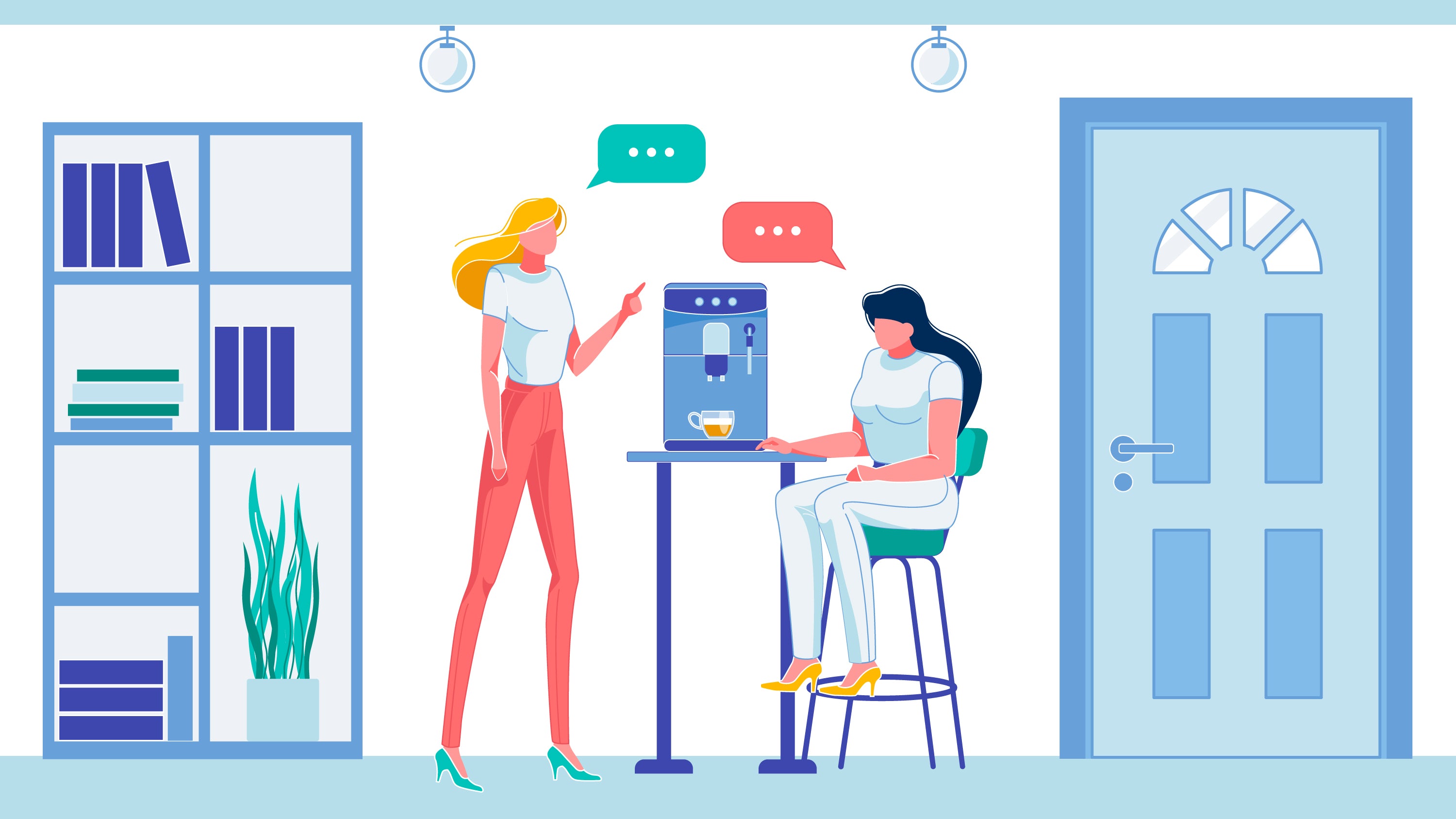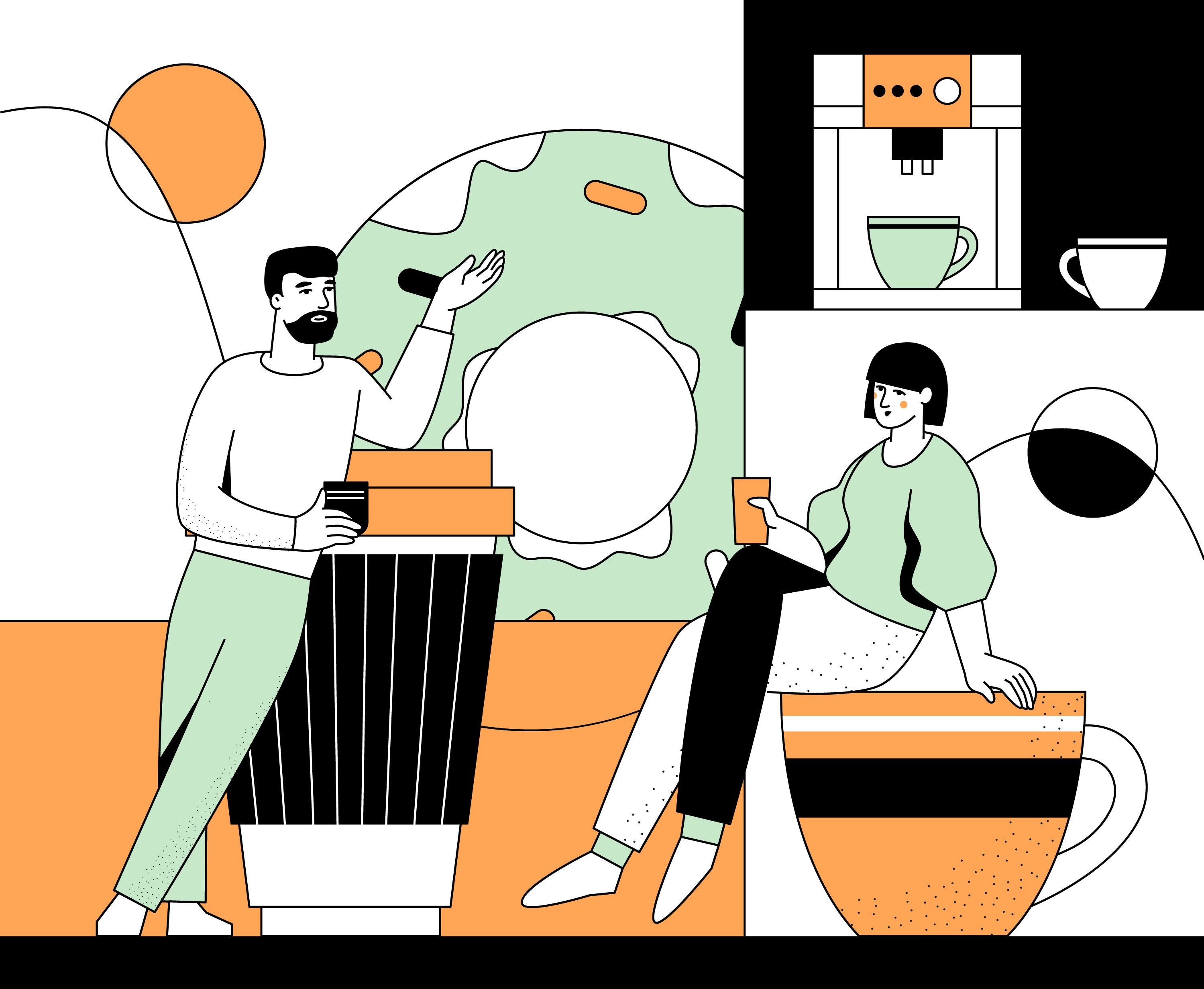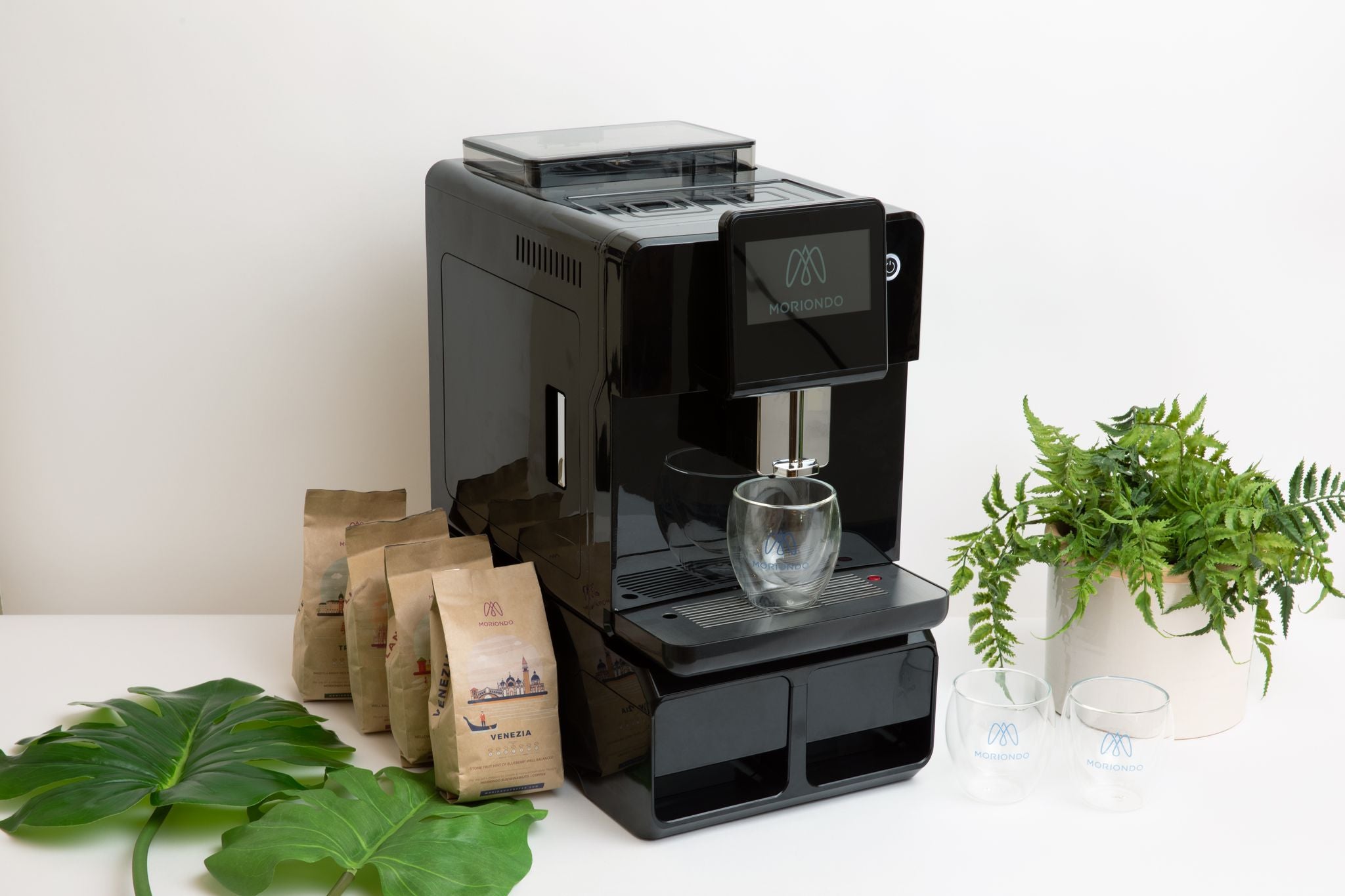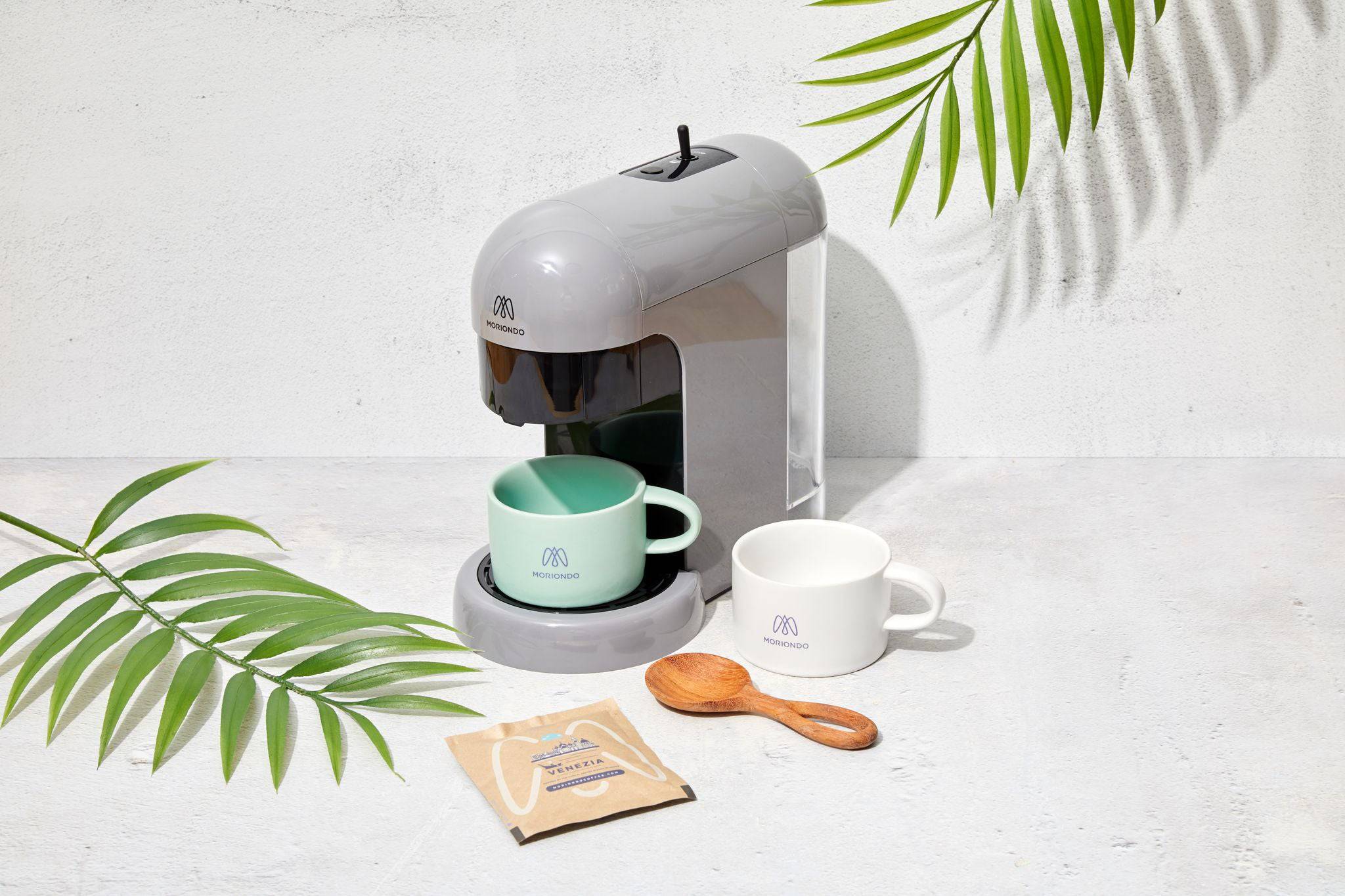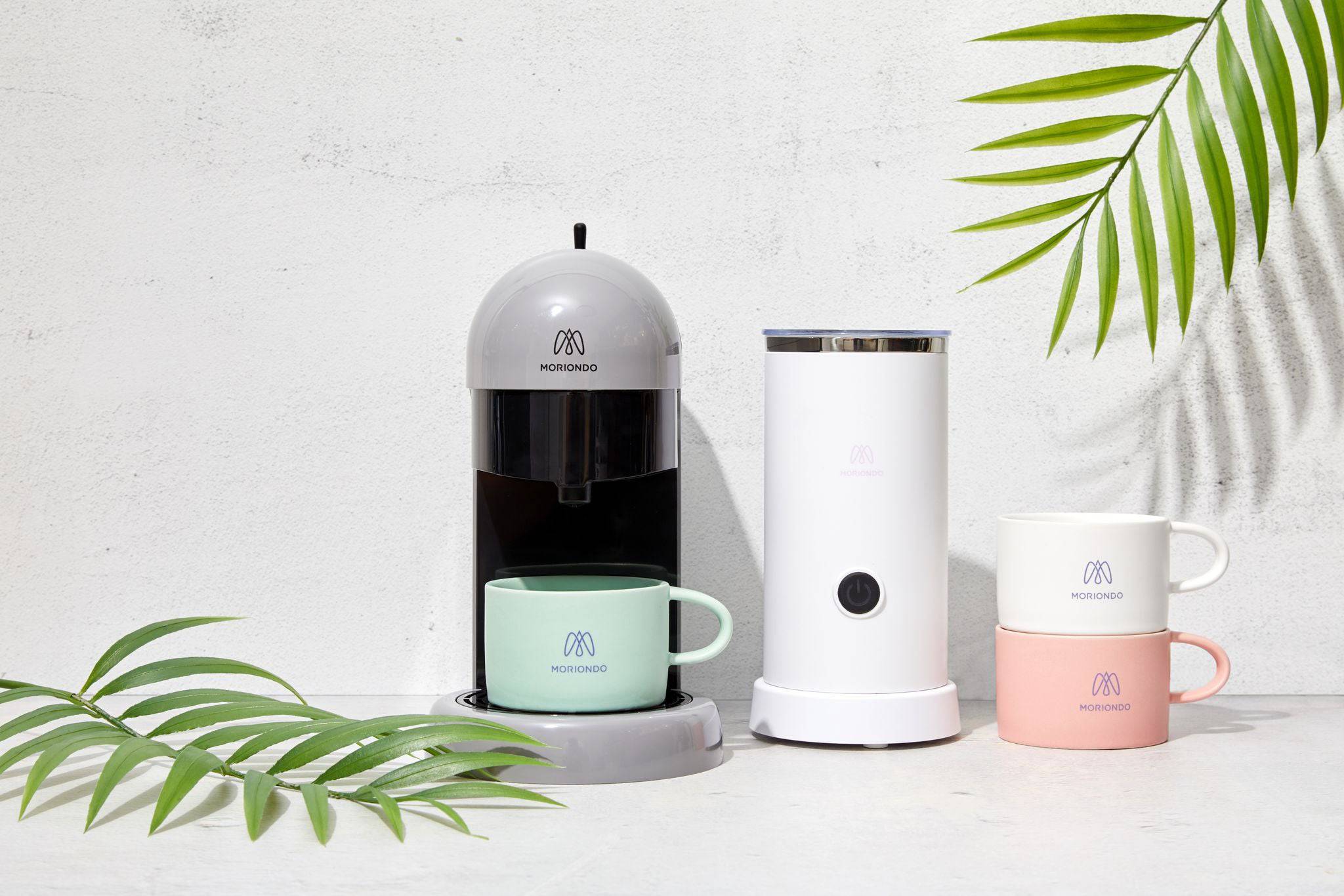Coffee and Productivity Levels
Table of Contents
- The Science Behind Coffee Beans
- Coffee Preparation and Productivity
- How Does Coffee Increase Productivity in the Office?
- How to Drink Coffee for Maximum Productivity
- Drinking in moderation
- Stay hydrated
- Avoiding sugary beverages and opting for black coffee
- Drink coffee when you’re tired
- Take regular breaks throughout the day
- Alternatives to Caffeine and Coffee
- FAQs
- Conclusion
Coffee is the lifeblood of productivity.
From startup execs to corporate professionals, coffee helps keep us focused and alert at work. But how much coffee is too much? Is it possible to overdo it on caffeine?
In this article, we’ll explore the science behind coffee consumption and its impact on productivity so you can make informed decisions about your daily routine.
A productive workday begins with a quality cup of coffee. Let’s find out how you can make the most of it.
The Science Behind Coffee Beans

Before we get into the specifics of coffee consumption, let’s take a look at what makes these beans so powerful.
Coffee beans contain several biologically active compounds like caffeine, antioxidants, and more than 1,000 aromatic molecules. It is this combination of substances that gives coffee its energizing effects.
Caffeine acts as a stimulant by blocking the neurotransmitter adenosine, which makes you feel sleepy.
It also increases dopamine and norepinephrine levels in your brain to keep you alert and focused.
Coffee also contains antioxidants that can help protect your cells from damage caused by free radicals. But how should the beans be prepared to maximize these benefits?
Coffee Preparation and Productivity
The way you prepare your coffee can have a big impact on productivity. Research suggests that strong espresso or French press coffee has the most caffeine content, while filter or drip-brewed coffee yields a milder effect.
For the most energizing effects, it’s best to stick with dark roast coffees as they have higher levels of caffeine than light roasts.
When it comes to the amount of coffee you should be drinking, everyone’s tolerance is different.
Generally speaking, 400mg of caffeine per day is considered to be a safe amount for most adults, so aim to keep your daily coffee consumption below this level. No wonder coffee is the go-to beverage of choice for office workers!
How Does Coffee Increase Productivity in the Office?
The office environment can be hard to stay productive in because of its distractions. People are talking, phones are ringing, and emails are constantly coming in.
Caffeine consumption can help you stay focused and alert by giving you a boost of energy and increasing your cognitive performance.
Let’s take a look at the three ways coffee can help you stay productive in the office.
Improves Memory and Concentration
Caffeine enhances your memory and helps you stay focused on tasks for extended periods of time. Studies suggest that a moderate amount of caffeine can help you recall information more quickly and accurately.
But how exactly does caffeine work to boost your memory? Caffeine intake increases the production of norepinephrine and dopamine, two chemicals in your brain that are important for learning and memory.
These neurotransmitters help strengthen neural pathways so you can better remember what you’re studying or working on more easily.
Remember that caffeine has effects on people differently, so it is important to find what works for you.
Increases Alertness and Energy Levels
Caffeine blocks adenosine in the brain, increasing alertness and energy levels. It also helps restore mental alertness when you’re feeling tired and sluggish due to a lack of sleep schedule.
Caffeine’s stimulant effects can also help you stay awake during long meetings or presentations and can even give you a boost of energy when you’re feeling overwhelmed by tasks.
Mostly during the midafternoon slump, the body is deprived of energy, and drowsiness sets in. This is when a cup of coffee can come to the rescue.
Improves Mood and Overall Well-being
A moody and grumpy office environment can lead to decreased productivity. Caffeine can help improve the mood and overall well-being of those around you by increasing feelings of happiness and elation.
Research shows that caffeine boosts serotonin levels, which is a hormone associated with good moods, relaxation, and happiness.
When serotonin is at normal levels, you feel more focused, emotionally stable, happier, and calmer. Therefore, having a cup of joe in the office can help you stay productive and improve your overall well-being.
Increases Motivation
Caffeine has been shown to increase motivation and improve performance on tasks that require sustained effort.
This is because the increased energy levels and alertness you get from caffeine help focus your attention on tasks and make it easier to stay motivated.
Caffeine can also help reduce feelings of procrastination, enabling you to get things done more quickly.
An employee who takes breaks and enjoys a cup of coffee during their shift is more likely to be productive and have a positive attitude towards work.
Reduces Fatigue
Fatigue is one of the most common reasons for decreased productivity in the workplace.
According to the researchers, the rate of lost productivity is much higher for workers with fatigue at 66% than for those who are alert and energized at only 6%.
Caffeine is a great way to stay energized and alert during work, as it helps reduce fatigue and boosts energy levels. By drinking coffee, you can stay alert, focused, and productive for longer.
Gives Employees a Break
Taking regular breaks is important for staying productive in the office. Drinking coffee can be a great way to give yourself a mental and physical break during the day.
Many people also use coffee to socialize at work, as it gives them an excuse to get up and move around to the office coffee machine or the coffee shops, talk to colleagues, or just take a few minutes away from their desks.
Taking a break with a cup of coffee can help refresh your mind and allow you to return to work feeling more productive than before.
Increases Creativity
Innovation is highly prized at most workplaces, and caffeine can help improve creativity.
Caffeine has been shown to increase focus, allowing you to come up with more creative solutions to problems.
It also helps reduce distractions and refocus your attention so that you can focus on more creative tasks.
Morning cup coffee can also help increase divergent thinking, which is the ability to come up with multiple solutions to a problem. This type of thinking is important for coming up with unique and innovative ideas.
How to Drink Coffee for Maximum Productivity

There is still much debate among researchers on the best way to drink coffee for maximum productivity. However, these coffee-drinking habits that can help you get the most out of your cup of coffee include:
Drinking in moderation
Too much coffee can lead to jitters and a decrease in productivity. It’s best to drink no more than two cups of coffee per day or limit it to one cup if you’re especially sensitive to caffeine.
The amount of caffeine per cup can vary depending on the type of coffee and how it’s brewed, so be sure to check this before drinking.
Stay hydrated
Caffeine is a diuretic, which means it can dehydrate a coffee drinker. Make sure to drink plenty of water throughout the day to stay hydrated and alert.
Avoiding sugary beverages and opting for black coffee
Sugar can give you an energy burst at first, but its effects are short-lived. It’s best to avoid sugary coffee drinks and opt for black coffee instead, as this will give you a sustained energy boost without the crash.
Drink coffee when you’re tired
Coffee is best drunk when you’re feeling drowsy, as this will give you an immediate energy boost.
If you’re feeling distracted or unmotivated, try taking a break and having a cup of coffee at your favorite coffee shop to help you get back into the zone.
Take regular breaks throughout the day
Remember that caffeine affects everyone differently, so it’s important to take a regular coffee break throughout the day. This will help coffee drinkers stay alert and productive without overdoing it on the caffeine.
Alternatives to Caffeine and Coffee
If you are looking for a productivity boost but don’t want to rely on caffeine, there are plenty of alternatives.
Exercise is a great way to increase alertness and focus, as physical activity releases endorphins that can improve concentration and focus.
Other alternatives include taking short breaks to get some fresh air, listening to music, or spending a few minutes meditating.
FAQs
How is coffee used in productivity?
Coffee can be a great way to increase productivity by providing an energy boost. The caffeine in coffee increases alertness and helps improve focus, allowing people to power through tasks more quickly.
Additionally, coffee has been linked to improved cognitive performance, so it can help with problem-solving and decision-making.
Which coffee is best for productivity?
The best coffee for productivity depends on the individual.
Some people find that strong, dark roast coffee provides the most energy boost, while others prefer lighter roasts.
Some people also like to add things like espresso shots or specialty mixes to their coffee for an extra boost.
Conclusion
Coffee is a great way to stay productive and alert in the workplace. In moderation, it can help coffee lovers stay focused and energized for longer periods of time.
However, it’s important to remember that everyone reacts differently to caffeine, so it’s best to take regular coffee breaks during the day and opt for black coffee over sugary drinks.
Alternatives such as exercise, fresh air, music, or meditation can also be beneficial for increasing alertness and focus.
Was this article helpful in understanding coffee and productivity? Let us know in the comments below.
Good Tasting Coffee: How to Identify Coffee Flavors

In order to appreciate the different types of coffee available, it's important to cultivate an awareness of its unique characteristics. Let's take a look at the way coffee connoisseurs judge different cups of coffee.
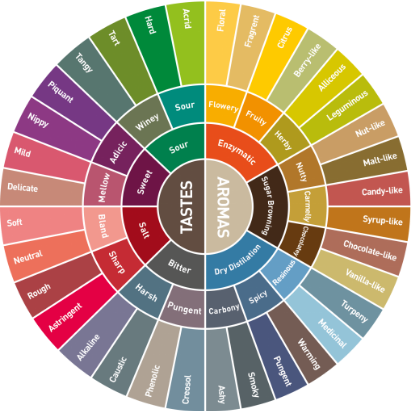
Aroma
The scent of a cup of coffee has a direct influence on how we perceive its flavor. As you drink coffee try to notice if the scent is smoky, fruity, earthy, spicy, nutty or grassy.
Acidity
One of the most defining characteristics of a cup of coffee is its acidity. This is the sharp, bright tangy quality of coffee that perks up our senses. Coffee doesn’t necessarily contain just one type of acid, either. It may contain citric acid, malic acid (fruity in flavor) or even quinic acid from stale coffee, which gives us stomach aches.
Body
This is the weight, thickness and texture of coffee in your mouth. The body of different types of coffee falls on a spectrum of light- to full-bodied viscosity (thin to thick).
Flavor
This is where comparisons come in handy and there is some overlap between aroma and flavor. Your coffee might taste bitter, sweet, savory or sour with common comparisons to chocolate, wine or fruit.
Related Posts

